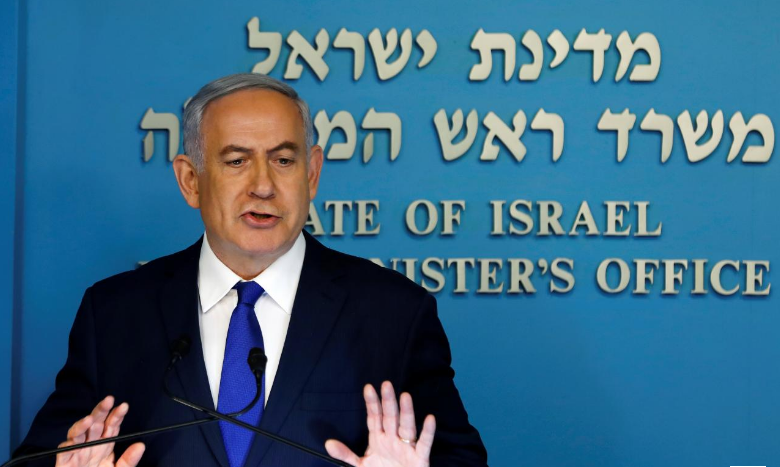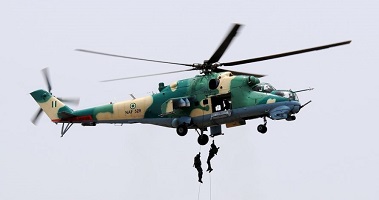- MPC meets tomorrow
Buoyed by increasing foreign portfolio investments (FPIs) and stability in crude oil price, Nigeria’s external reserves has risen to a five-month high of $43.507 billion as of last Thursday, THISDAY has learnt.
The reserves rose as the Monetary Policy Committee (MPC) of the Central Bank of Nigeria (CBN) will commence its 266th meeting tomorrow.
The last time the foreign exchange reserves got to its present level was on October 9, 2018.
THISDAY gathered that following the successful completion of the general election, which has since seen the deceleration of political risks in the country, portfolio investors have been taking advantage of Nigeria’s attractive fixed income instruments.
Investor interest, it was learnt, has been upbeat with the recent treasury bills that were auctioned oversubscribed.
Similarly, in the bond market, investors have continued to take position in attractively priced instruments.
Similarly, in the bond market, investors have continued to take position in attractively priced instruments.
On the other hand, the price of crude oil, which is also a major driver of Nigeria’s external reserves has been stable with the benchmark Brent crude closing at $66.75 to a barrel yesterday.
Meanwhile, the Monetary Policy Committee (MPC) of the Central Bank of Nigeria (CBN) would commence its 266th meeting tomorrow.
The two-day meeting would be the second this year, with analysts predicting that the central bank would leave all its key monetary policy tools unchanged.
At its meeting in January 2019, the MPC had maintained the Monetary Policy Rate (MPR) at 14 per cent, with the asymmetric corridor at +200 and -500 basis points around the MPR. It also retained the Cash Reserve Ratio (CRR) and Liquidity Ratio (LR) at 22.50 per cent and 30 per cent respectively.
To analysts at FSDH Merchant Bank Limited, looking at the short-term outlook of the economy, members of the MPC will vote to maintain policy rates at the current levels.
They noted that the current position of the external reserves and the increase in FPIs have provided short-term stability for the value of the naira.
“Recent data on inflation, exchange rate and interest rate on fixed income securities in Nigeria have shown temporary improvement.
“This may mean things are looking up in Nigeria. Therefore, the temporary stability in key indicators from January 2019 till 21 March 2019 may support an argument for monetary policy easing (reduction in interest rate and other measures that can push more money into the financial system).
“Adding to the debate supporting easing of monetary policy is the fact that the general election is now behind us, so the negative impact of electioneering spending on price stability and associated uncertainties surrounding the election may be over.
“However, FSDH Research believes the short-term outlook of the Nigerian economy justifies a hold decision on policy rates at the current levels.
“FSDH Research believes the decision of monetary policy would be based on what will happen to price stability if there is an adjustment to the pump price of Petroleum Motor Spirit (PMS) and the electricity tariff sometime this year,” the firm stated.
But the US Energy Information Administration (EIA) recently predicted an average price of Brent Crude of $62.78 per barrel in 2019, down from $71.19/b in 2018.
This lower oil price, given the OPEC production cut, signifies Nigeria may generate lower revenue in 2019 than in 2018, hence, the need to maintain a tight monetary stance to attract investors into the Nigerian financial system, FSDH added.
To Afrinvest West Africa Limited, with the moderating inflation and improving external reserves, due to a surge in capital inflows post-elections, “the CBN would maintain all policy rates to manage the delicate balance between growth, inflation and exchange rate stability. “
“Although the case for monetary easing has become compelling, the CBN is more comfortable using open market operations (OMO) instruments to guide yields rather than the MPR. This has already resulted in a moderation in average T-bills and bond yields to 13.2 per cent and 14.2 per cent respectively.
“However, this strategy is unlikely to be supportive of growth given that interest rates in the real economy would remain high. Although members expressed concerns about the fragile state of the economy in the last two MPC meetings, we believe the power to adjust yields to attract and sustain capital flows as and when needed supersedes this.
We do not see the possibility of a rate hike due to weak economic growth, which remains below population and long-term growth rates of three per cent and 7.6 per cent respectively,” the firm added.
The CBN Governor, Mr. Godwin Emefiele, last week projected that the Nigerian economy would grow by three per cent in 2019, higher than the 1.93 per cent it achieved in 2018.
Emefiele also said the central bank would continue to maintain a tight monetary policy stance to rein in inflation, which he said was expected to rise to 12 per cent in the course of the year before moderating.
Source: THISDAY












